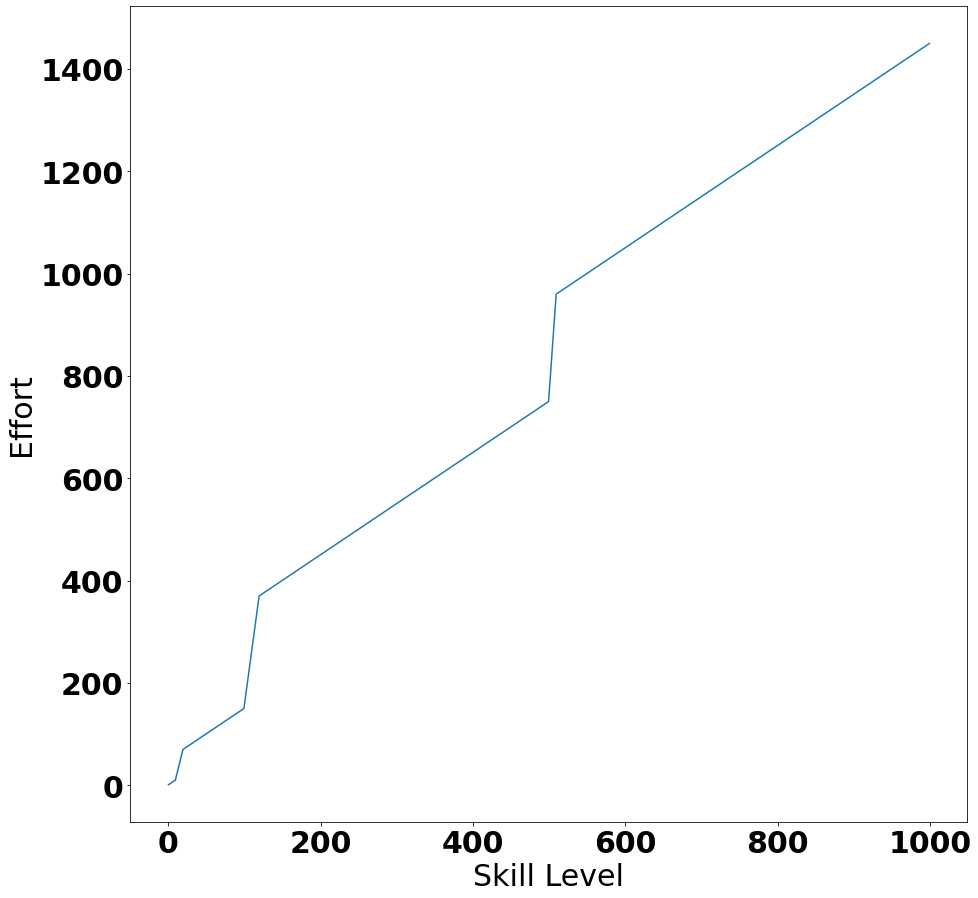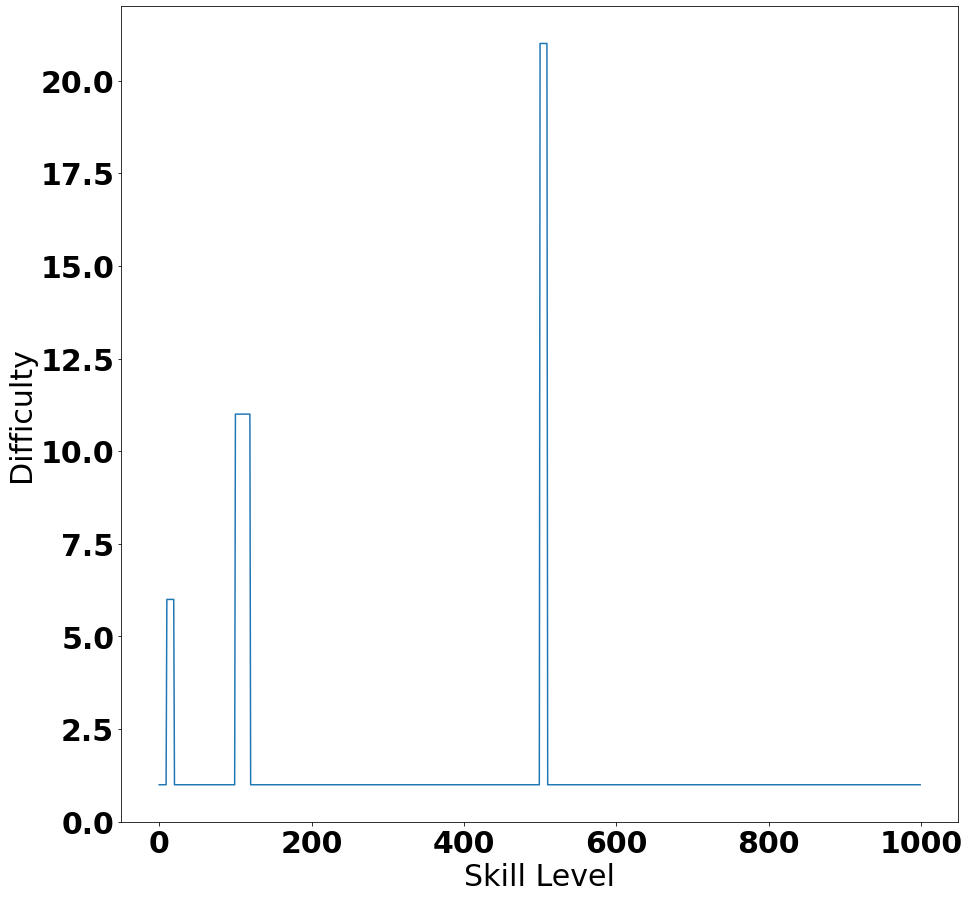DRMacIver's Notebook
Clearing hurdles in learning
Clearing hurdles in learning
The following is not true, but it’s often close enough to true that it’s worth using as a working model.
When learning a skill, the level of effort required to get to a given point typically looks something like this:

This corresponds to the following difficulties of improvement at any given point:

(These numbers are made up imaginary units, obviously)
That is, the difficulty of getting better is usually pretty easy, but occasionally there are spikes where the difficulty rapidly increases. The gentle bits are the places where the way to improve is to just do the thing, the spikes are the bits where there’s some insight you need to figure out to progress.
A very simplistic model of human behaviour is that people do things that are worth the effort of doing. As a result, what often happens when people are learning a skill is that they progress as long as it’s easy, and then they hit a part where it’s difficult it’s no longer worth it to them to keep progressing.
As a result what you end up with is people who stall out particular points in their skill progression, thinking they have reached the limit of their talent, when in fact all they needed was a sustained period of effort at which point they would have started getting better again.
I think people generally solve these problems in one of three ways:
- Being smart tends to lower the effort in one of these spikes. I don’t know how much of this is “intrinsic” smartness and how much is having already learned the right skills of learning, but if smartness is a thing at all it certainly reduces the effort of generating insights when you’re blocked on skill development.
- Being very into the subject makes more effort seem worth it, so someone with exactly the same level of “talent” but more interest will often get better because they reach a spike in difficulty and it’s still worth it to them to overcome it.
- Having a good teacher hugely reduces the difficulty level of these spikes, because they already know the insights you’re struggling to come up with and can help you discover them.
- Believing in this model will often motivate you to put in more effort than seems reasonable until you’ve overcome the hump, banking on the promise of future reward (I think, to the degree that they do, this is a lot of why “growth mindset” interventions work).
This is what I tend to mean when I say that almost nobody is bottlenecked on talent. They’re probably just at a point in their skill development where it wasn’t worth it for them to get better on their own, and nobody provided them with the right external support they needed to overcome the current spike in difficulty.
This is then compounded by the fact that the messaging they get about skill tends to convince them that this is evidence that they lack talent and will never be good at the thing, when in fact they’re probably not substantially less talented than many people who end up way better than them due to a mix of luck, privilege, and motivation.